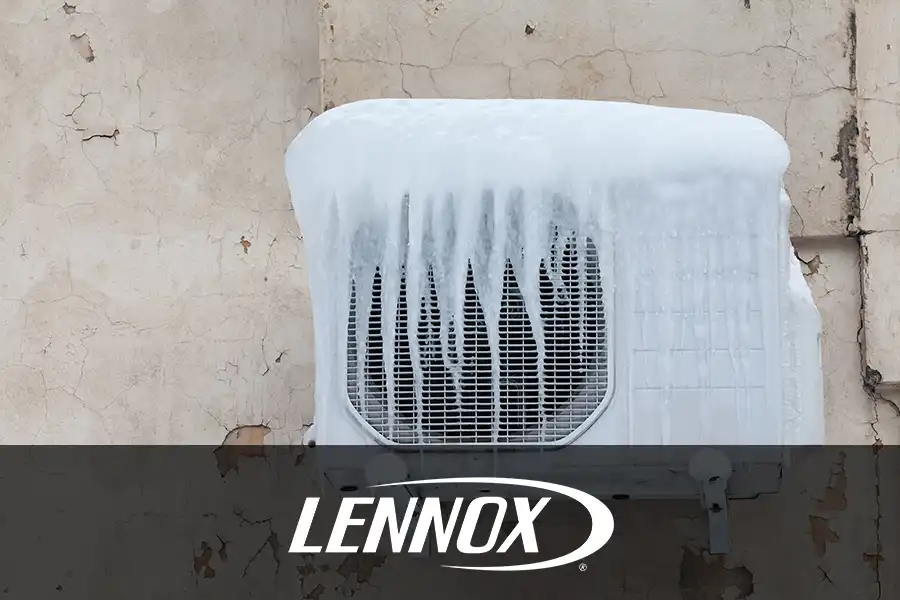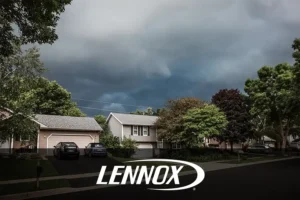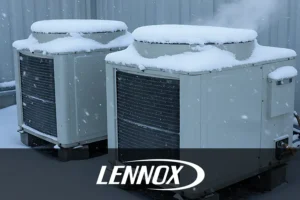As summer temperatures rise in Springfield, IL, your air conditioner becomes a vital component in maintaining a comfortable home or business. But what happens when your AC unit starts to malfunction — or worse, freezes up completely? If you’ve ever walked outside to find your air conditioner covered in a thick layer of ice, you’re not alone. A frozen AC is a common issue, but one that should never be ignored. At Bormida Heating & Cooling, we’ve helped hundreds of homeowners and business owners in the Springfield area troubleshoot frozen air conditioners. With over 14 years of experience in the HVAC industry, we are familiar with the warning signs, the root causes, and, most importantly, the best methods to resolve the issue and prevent it from recurring.
Our experts can explain why your air conditioner might be freezing up, what it means for your cooling system, and what you can do to resolve the issue quickly.
What Does It Mean When an AC Freezes Up?
Your air conditioner works by drawing warm air from your home, removing the heat through refrigerant coils, and returning cooled air inside. When everything is working properly, the coils remain cool, not freezing. However, when something disrupts the balance of airflow, temperature, or refrigerant, those coils can drop below freezing, causing condensation to form around them and freeze. This results in frost or ice build-up, typically on the evaporator coil, refrigerant lines, or even the outdoor unit. A frozen air conditioner isn’t just inconvenient — it can cause long-term damage to your HVAC system and spike your energy bills. Let’s take a closer look at what might be causing the freeze.
Restricted Airflow
Poor airflow is one of the most common culprits. Your AC requires a constant flow of warm air over the evaporator coils to prevent them from becoming too cold. If the airflow is restricted, those coils can drop below freezing and begin to ice up.
Common airflow blockers include:
- Dirty or clogged air filters
- Blocked return vents
- Closed or obstructed air ducts
- Dirty evaporator coils
Fix: Replace your air filters every 1–3 months and ensure vents and ducts are clear of furniture, dust, or debris. Regular HVAC maintenance can also help prevent buildup on your coils.
Low Refrigerant Levels
Low refrigerant can also cause your AC coils to freeze. This typically occurs when there is a leak in the system. Without enough refrigerant to absorb the heat from the air, the coils get too cold and start to ice over.
Signs of low refrigerant include:
- Hissing or bubbling noises
- Poor cooling performance
- Ice buildup on copper lines
Solution: Contact a reputable HVAC professional, such as Bormida Heating & Cooling, to inspect your system for leaks, recharge your refrigerant, and restore your AC’s efficiency.
Thermostat Issues
If your thermostat is malfunctioning or inaccurately reading the indoor temperature, it may cause your system to overwork, leading to freezing conditions.
Fix: Check your thermostat settings to ensure they are calibrated correctly. If it’s outdated or faulty, consider upgrading to a smart thermostat for better control and efficiency.
Blocked Condensate Drain Line
Your AC removes humidity from the air as part of its cooling process. That moisture drains through a small pipe, known as the condensate line. If the line gets clogged, it can cause excess moisture to freeze on the coils.
Fix: Clear out the drain line using a wet/dry vacuum or have an HVAC technician flush it during a routine tune-up.
Dirty Coils
Even if your air filter is clean, dust and debris can accumulate on your evaporator coils over time. Dirty coils can’t transfer heat properly, which leads to freezing.
Fix: Schedule a professional cleaning service. At Bormida Heating & Cooling, our technicians thoroughly clean your coils during seasonal maintenance visits.
Fan or Blower Malfunctions
If your indoor fan or blower motor is not functioning properly, it will not push enough warm air over the coils. The lack of air movement can cause the temperature to drop below freezing.
Fix: Listen for strange noises or weak airflow from your vents. If something seems off, call in a technician for a blower inspection or replacement.
What to Do If Your AC Is Already Frozen
If you’ve discovered that your air conditioner is frozen, follow these steps:
- Turn Off the System Immediately: Shut off the thermostat and allow the ice to thaw completely. Running a frozen AC can damage the compressor.
- Check and Replace Your Air Filter: A dirty filter is a quick and common fix. Swap it out if it looks clogged.
- Switch the Thermostat to Fan Mode: This helps circulate warm air over the coils, speeding up the thawing process.
- Call a Professional: Once your system is thawed, call Bormida Heating & Cooling to inspect your unit and prevent future freezing issues. There could be an underlying problem you can’t see.
Preventing a Frozen Air Conditioner: Pro Tips from Bormida Heating & Cooling
Preventing freezing starts with consistent maintenance and attention to your HVAC system:
- Schedule Annual Tune-Ups: A spring check-up can detect airflow and refrigerant issues before the summer heat arrives. Contact our team for expert service today.
- Change Your Filters Regularly: A clean filter is your first line of defense against airflow restrictions.
- Keep Vents and Ducts Clear: Ensure all rooms receive proper airflow.
- Invest in a Smart Thermostat: Better control can prevent overcooling and wasted energy.
- Watch for Warning Signs: Don’t ignore poor cooling performance, high bills, or odd noises.
Call Bormida Heating & Cooling—the AC Experts in Springfield, IL
Don’t let a frozen air conditioner ruin your summer comfort. Whether you’re dealing with your first AC freeze-up or this is a recurring problem, Bormida Heating & Cooling is here to help. With over 14 years of experience serving homeowners and businesses in Springfield, IL, we’ve built our reputation on quality service, certified technicians, and total customer satisfaction. From simple repairs to complete system maintenance, we’ve got your HVAC needs covered.
Call 217.210.2662 for a free quote or to schedule your AC repair — and stay cool all summer long.







